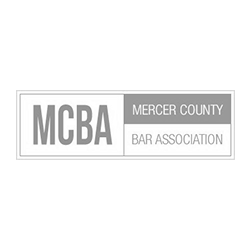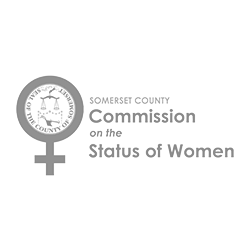In May of this year, New Jersey joined the growing number of states to enact paid sick leave laws. The New Jersey Paid Sick Leave Act is currently in effect and below you will find certain information that is important for all New Jersey employers to understand.
Who Does it Affect?
The Act applies to New Jersey employers of all sizes, including businesses that are based elsewhere but have employees located in New Jersey. While several New Jersey municipalities already had paid sick leave ordinances, this new state law preempts them, meaning they no longer apply and employers throughout the state are now subject to one consistent set of requirements.
The Act does not apply to a few narrow categories of employees: (1) construction industry employees working under collective bargaining agreements; (2) per diem health care employees; or (3) public employees who are already provided with sick leave with full pay pursuant to any other state law, rule, or regulation.
Employers who already have paid time off and/or paid sick leave policies that comply with the Act’s minimum requirements need not create an additional sick leave policy. But, it is essential to review current paid time off policies as soon as possible to ensure that they do in fact meet the Act’s minimum requirements, and if not, update them as necessary. Contact us if you need assistance to create a paid sick leave policy for your employees, or to review and update your existing policies to ensure they meet all of the Act’s requirements.
What are the Act’s Requirements?
Accrual of Paid Sick Leave. Under the Act, employees will accrue, beginning October 29, 2018, one hour of sick leave for every 30 hours they work. They can use or accrue no more than 40 hours of paid sick leave per benefit year, and can carry forward no more than 40 hours of paid sick leave from one benefit year to the next. Employers can opt to forego the accrual process and allow employees to start each benefit year with the full 40 hours of sick leave.
Using Accrued Sick Leave. Employees are eligible to begin using their accrued paid sick leave 120 days after commencing employment. After that, they can use sick leave as soon as they accrue it. Employees using earned sick leave must be paid at the same rate of pay with the same benefits that they normally earn. Or, the employee can opt, with the employer’s agreement, to work additional hours or shifts to make up for hours or shifts missed while sick, rather than deduct from their accrued sick leave.
Beyond an employee’s own personal sickness, there are a variety of reasons an employee can use paid sick leave under the Act. For example, it can be used to take time off for: medical appointments, including preventive medical care; caring for sick or injured family members; circumstances involving domestic violence; workplace or school closures due to public health emergency; or school meetings or functions relating to an employee’s child.
Employers can require up to seven days’ advance notice when an employee’s need to use sick leave is foreseeable, but can only require employees to provide notice “as soon as practicable” when they unexpectedly need to use paid sick leave.
Employers can, under certain circumstances (and with advance notice to employees), prohibit the use of paid sick leave for foreseeable reasons on certain dates, for example, high-volume periods or special events, during which the use of foreseeable earned sick leave would unduly disrupt the employer’s operations.
Notice Requirements. Employers must “conspicuously post” the notification poster issued by the state Department of Labor & Workplace Development “in a place or places accessible to all employees in each of the employer’s workplaces.” You can download a copy of the notice in English and several other languages from the Department’s website at: https://www.nj.gov/labor/earnedsick/index.html. Employers must post and distribute a copy of this notice to each employee by November 29, 2018, and must subsequently provide copies to new employees upon hire, and any employee who requests one. Under the Department’s proposed rules for the Act, posting the notice on your company’s intranet/internal website, and distributing the notice to employees via e-mail, can satisfy the notice requirements.
Recordkeeping. In general, employers must maintain records of the hours worked by their employees, and earned sick leave used by employees, for a period of five years, and allow the state Department of Labor & Workforce Development to access and review those records on demand.
Anti-Discrimination and Anti-Retaliation. Employers are prohibited from discriminating against employees for using paid sick leave. For example, use of earned sick leave taken in compliance with the Act cannot be counted as an absence that may result in employee discipline, discharge, demotion, suspension, a loss or reduction of pay, or any other adverse action. It is also unlawful to retaliate against employees who allege their employers have violated the Act.
Consequences of Non-Compliance. Penalties for violating the Act can include fines and even jailtime.
For More Information
This alert is intended as a general overview of the Act to update the Firm’s clients; there are many more details contained in the Act and its proposed administrative rules that are not covered here. If you need further details, answers to specific questions, an analysis of your business’s compliance with the Act, or assistance in administering your paid sick leave program, please contact us.
-


-
Ian Hammett- Estate Planning Article SeriesTips for College Students & Parents: Be Prepared
As families begin to plan for their child’s transition into college, there are many practical logistics to consider. One such item that should be on the top of the list is to ensure they are prepared to be on their own from a legal perspective. At Mason, Griffin & Pierson, we offer a program to counsel college students and their parents in such matters. To find out more about preparing documents for your student, Click Here.
“Do I really need a Will?“ The answer for almost all adults in New Jersey, from those just starting out to those well into retirement years, is yes, you should have a Will.
At Mason, Griffin & Pierson, we can assist clients develop a comprehensive estate plan to express their wishes that incorporates, as appropriate, estate and gift tax planning strategies and prepare the documents. Documents include Last Wills and Testaments, Powers of Attorney, and Advance Directives for Health Care.
To find out more about estate planning, Click Here. To schedule a no obligation consultation, Click Here. -
New Reporting Requirements Corporate Transparency Act On January 1, 2024, reporting requirements under the Corporate Transparency Act ("Act"), went into effect. All businesses subject to the Act will have to report specific information on the company and certain individuals that own and/or control the company. Mason, Griffin & Pierson is happy to guide you through this reporting process and answer any questions that you may have. Please do not hesitate to reach out if you would like our assistance.
On January 1, 2024, reporting requirements under the Corporate Transparency Act ("Act"), went into effect. All businesses subject to the Act will have to report specific information on the company and certain individuals that own and/or control the company. Mason, Griffin & Pierson is happy to guide you through this reporting process and answer any questions that you may have. Please do not hesitate to reach out if you would like our assistance.
-
Sharon A. Dragan receives the Michael A. Pane Ethics In Government Award Congratulations to Sharon A. Dragan for receiving the Michael A. Pane Ethics In Government Award. The award was presented by the NJILGA at the New Jersey State League of Municipalities November convention. The Michael A. Pane Ethics In Government Award honors a municipal professional who exemplifies the highest standards of ethics and whose work has significantly enhanced the integrity of local government. November 2023
The Michael Pane Award, established by the Pane Family and the New Jersey State League of Municipalities, is given in honor of Michael A. Pane, Sr., who was the long-time editor of the Municipal Law Review, president and trustee of the New Jersey Institute of Municipal Attorneys, counsel to the New Jersey Association of Municipal Clerks, counsel to the League of Municipalities and author of the New Jersey Practice Series, Local Government Law volumes.
Congratulations to Sharon A. Dragan for receiving the Michael A. Pane Ethics In Government Award. The award was presented by the NJILGA at the New Jersey State League of Municipalities November convention. The Michael A. Pane Ethics In Government Award honors a municipal professional who exemplifies the highest standards of ethics and whose work has significantly enhanced the integrity of local government. November 2023
The Michael Pane Award, established by the Pane Family and the New Jersey State League of Municipalities, is given in honor of Michael A. Pane, Sr., who was the long-time editor of the Municipal Law Review, president and trustee of the New Jersey Institute of Municipal Attorneys, counsel to the New Jersey Association of Municipal Clerks, counsel to the League of Municipalities and author of the New Jersey Practice Series, Local Government Law volumes.
-
Liz Zuckerman appointed to the District VII Ethics Committee: The Supreme Court of New Jersey appointed Elizabeth Zuckerman to serve on the District Ethics Committee for District VII (DEC VII) for a three-year term. The district includes Mercer County. August 23, 2023
The Supreme Court of New Jersey appointed Elizabeth Zuckerman to serve on the District Ethics Committee for District VII (DEC VII) for a three-year term. The district includes Mercer County. August 23, 2023
-
Paul M. Bishop named Director We are pleased to announce the election of Paul M. Bishop to the Board of Directors, Mason, Griffin & Pierson, PC. Paul, one of the firm’s senior litigators, practices business, commercial, and general litigation, and represents clients in complex disputes throughout New Jersey’s state and federal courts. July 2023
We are pleased to announce the election of Paul M. Bishop to the Board of Directors, Mason, Griffin & Pierson, PC. Paul, one of the firm’s senior litigators, practices business, commercial, and general litigation, and represents clients in complex disputes throughout New Jersey’s state and federal courts. July 2023
- June 2022
- October 2021
- May 2021
- March 2021
- February 2021
- January 2021
- December 2020
- March 2020
- February 2020
- January 2020
- December 2019
- October 2019
- July 2019
- June 2019
- May 2019
- March 2019
- January 2019
- December 2018
- November 2018
- October 2018
- September 2018
- June 2018
- May 2018
- April 2018
- March 2018
- February 2018
- January 2018
- December 2017
- November 2017
- October 2017
- September 2017
- August 2017
- June 2017
- May 2017
- April 2017
- February 2017
- December 2016
- November 2016
- October 2016
- September 2016
- July 2016
- June 2016
- May 2016
- April 2016
- March 2016
- February 2016
- January 2016
- December 2015
- November 2015
- October 2015
- September 2015
- July 2015
- June 2015
- May 2015
- April 2015
- March 2015
- February 2015
- January 2015
- December 2014
- November 2014
- October 2014
- September 2014
- August 2014
- July 2014
- June 2014
- May 2014
- April 2014
- March 2014
- February 2014
- January 2014
- December 2013
- November 2013
- October 2013
- September 2013
- August 2013








